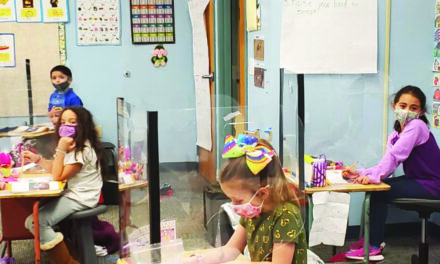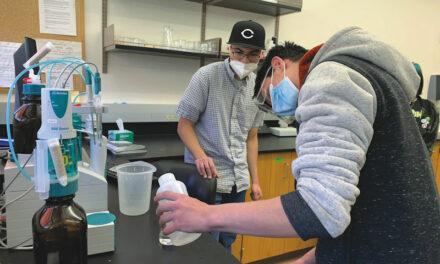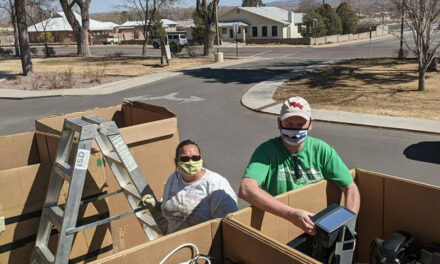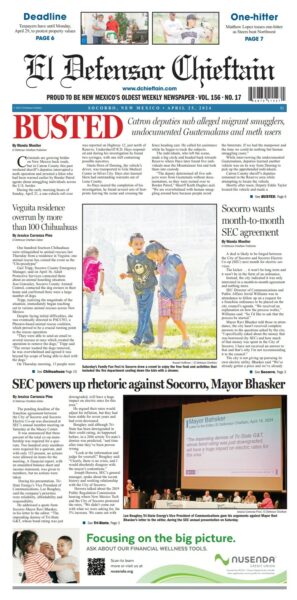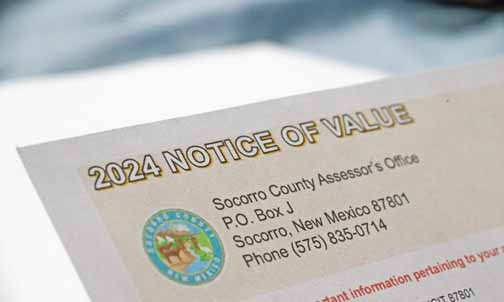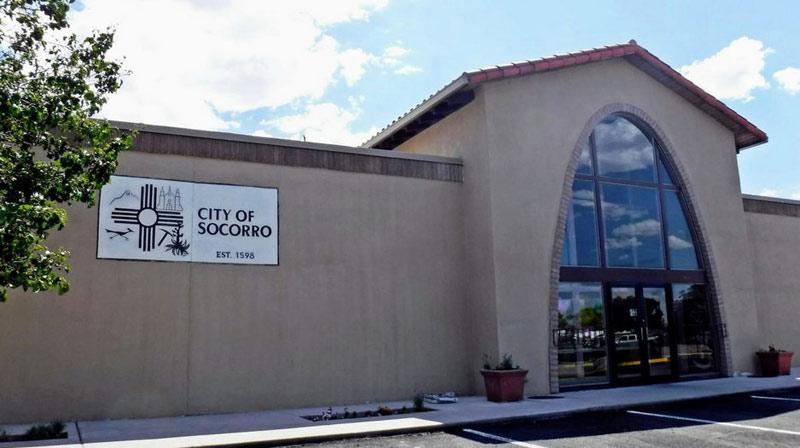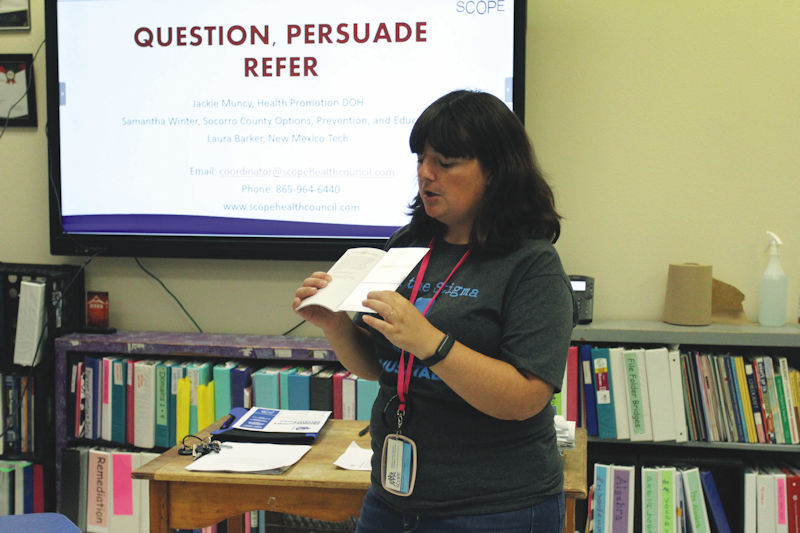
SCOPE Health Council coordinator Sam Winter shares mental health resources with Socorro School District staff during a suicide prevention training. Winter was teaching QPR, a suicide prevention strategy.
Cathy Cook | El Defensor Chieftain
QPR stands for question, persuade and refer, an approach to suicide prevention that Socorro High School social worker Frances Fuller hopes will become as common knowledge as CPR.
Two staff members in the district were certified to train other staff in QPR in 2020, and the entire middle school staff was trained in the prevention method by January 2020. Fuller is hopeful that by the end of this school year, the staff members at the high school can all receive the training and other adults in students’ lives, like parents and community members, can start receiving the training. The long-term goal is to also train high school students in QPR, but all the adults around them need to be trained first said Fuller.
SCOPE Health Council coordinator Sam Winter offers the training in Socorro. Teachers and staff spent the Tuesday before the semester began attending different trainings to help prepare them for the new school year, including Winter’s QPR training. Three staff members attended Winter’s afternoon training.
QPR is not counseling emphasized Winter. Instead it’s an intervention that anyone can practice: asking someone who exhibits warning signs if they are feeling suicidal, persuading someone who is suicidal to keep themselves safe and helping them get help by referring them to resources like a crisis hotline or a counselor.
Most people who attempt suicide do not want to die, but feel like there is no other option, said Winter.
“A lot of times they just need somebody to talk to and they just need another option,” she said.
High school students in Socorro who die by suicide tend to attempt suicide a couple of times before dying by suicide, said Winter. While that is not good, it does mean that there may be more opportunity to intervene before the student dies.
According to the 2021 New Mexico Community Survey, which gathered data in 2020, Socorro’s LGBTQ community is at a much higher suicide risk than the community at large. The survey found that 68 percent of the LGBTQ community self-identified with mental illness or substance abuse issues, compared to 25 percent of straight respondents. Mental illness and substance abuse can both be risk factors for suicide. In Socorro, 39 percent of LGBTQ respondents said they seriously considered suicide, compared to six percent of heterosexual people.
New Mexico as a whole was fourth in the nation for suicide deaths in 2019. An increase in cyber bullying has impacted suicide rates among students and adults across the country, said Winter. It seems like the pandemic also had an impact on suicide deaths, but Winter does not have data on that yet.
Winter suggested looking out for warning signs that someone might be suicidal: verbal cures, phrases like ‘who cares if I’m dead anyway,’ behavioral cues, like putting affairs in order, and situational cues, like losing a job or relationship. In kids, putting affairs in order could look like giving away prized possessions or a student with bad grades suddenly working for an outstanding grade on one project. The pandemic itself could be a trigger for suicide, said Winter.
Attendees practiced using QPR in a role playing exercise. First Winter had each person in the circle introduce themselves and just practice asking the question: “Are you suicidal?” The stigma around suicide is strong and part of the goal of the training is to get participants comfortable talking about suicide.
Winter offered tips like getting other people involved in supporting the student and offering to sit with the person while they call or text a crisis line.
Social and emotional learning in general are going to be a big focus this school year, with more state and federal funding available to support it. Fuller said she believes social and emotional learning have always been critical for students and the district has been internally supportive, but she’s never seen such a push at the federal and state level or felt so financially supported in her role before.
“I think mental health in general is a huge need, especially in the face of isolation that people have been going through the last year,” said Fuller. “I feel like the culture of living on your phone is huge. I always feel like kids are existing in this sub world of their phone and it can get deep. That stuff is created to keep you engaged. You can get really deep into some dark stuff and feel like you’re really part of it, whether it’s politics or drama or bullying or whatever, or just sad stories, there’s so much that you can get sucked in.”
Socorro High School students will have a new part of their day this school year: an advisory period that will be used to help implement a social and emotional learning curriculum. The curriculum is supposed to work on five areas: self awareness, self management, social awareness, relationship skills and responsible decision making.
“We just want them to feel aware of themselves, aware of people around them, comfortable at school, comfortable asking for help, able to help others and seeing, ‘How do I impact other people and how do I take care of myself? How do I take care of other people? How do I make good decisions now that are going to help me later? How do my decisions impact me later?’” said Fuller.
Teachers are being encouraged to use listening circles to build a culture of listening and respectful communication, said Fuller. The advisory period is also meant to give students at least one adult at the school who knows them well. The advisory period will also offer a space and time for restorative practice, an approach to conflict that tries to prevent situations from occurring by building relationships and making sure people feel heard.
“The goal is that the restorative practice decreases the need to use disciplinary measures,” said Fuller. “If we can, number one, prevent situations from happening because we’re all interacting with each other differently, then that’s part of the dream. Then the other part of the dream is that if something’s happening, how can we respond in a restorative way rather than something just is what it is. Sometimes there may be that we have to use discipline, because there has to be a consequence for things, so there may be a disciplinary measure as consequence, and also how can we work with the student to reintegrate.”
Socorro Mental Health accepts walk-ins for crisis intervention directly at the high school. The school district is working on getting an anonymous reporting phone app that will allow anyone to report concerns or tips anonymously to a crisis center. The national Suicide Prevention Lifeline is 1-800-273-8255.





